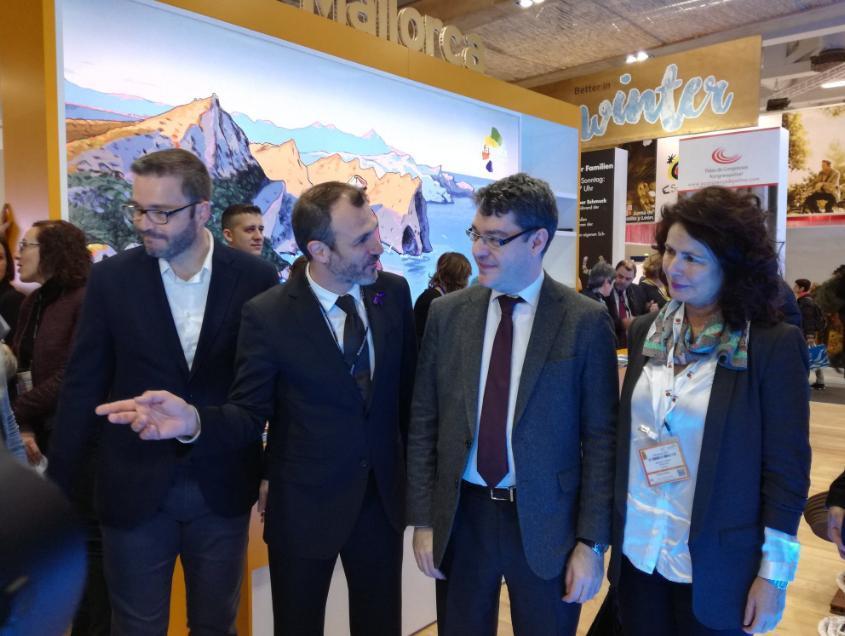On the first day of the ITB Berlin travel fair, spokespeople from different parts of Spain were yesterday only too happy to talk about the excellent prospects for German tourism. The Canaries, the Costa del Sol, the Balearics all had similar messages. Everything's going fine.
Balearic tourism minister Biel Barceló said that the main promotional campaign theme - "Better in Winter" - had been well received by the German media. He explained, once more, that this campaign is all about a new model of tourism for the Balearics. It is one for addressing seasonality and for giving greater employment opportunities and social advantages. The figures for low-season tourism this year are good, he noted, but the season will have to draw to a close before a true assessment can be made.
Palma's mayor, José Hila, stressed the importance of the German market for the city's tourism. It is "fundamental" and provides 65% of low-season tourism. It is a market which is attracted, for instance, by Palma's culture and heritage. All indications are for further growth in the low season and for an ever longer season. As an example, 50% more hotels were open in February, and German tourism was the principal reason for this.
Meanwhile, Tui were talking about a competitor destination - Egypt. Recovery of Egyptian tourism is still modest, but Tui Germany are currently registering double-digit growth for 2017 reservations.
As far as Majorca is concerned, Tui were pointing to the opening of two new family hotels this summer under the Best Family name. Thomas Cook, despite talk of its abandoning Majorca (greatly exaggerated talk), made reference to the increase in the portfolio of Thomas Cook Signature hotels in Majorca.
Environmentalists GOB, no strangers to making an intervention at the Berlin fair, chose the first day to denounce the negative effects of tourist saturation. The organisation has a new campaign with the Global Nature Fund; they are both pointing to a probable repeat of the saturation of last summer. The German market, a statement read, needs to be aware of the negative consequences of this for the Balearics.
Specifically identified were the increase in waste and consequent incineration; uncontrolled mooring of boats; overcrowded beaches; the "invasion" of hire cars on roads that are also "saturated"; and the overuse of water resources.
GOB's international spokesperson, Gerald Hau, said that German tourists do not know about the negative impact of tourist saturation. It is important that they do, as German tourists are sensitive to the conservation of natural resources. The environmentalists insisted that there needs to be a limit to the number of tourists.


No comments
To be able to write a comment, you have to be registered and logged in
Currently there are no comments.